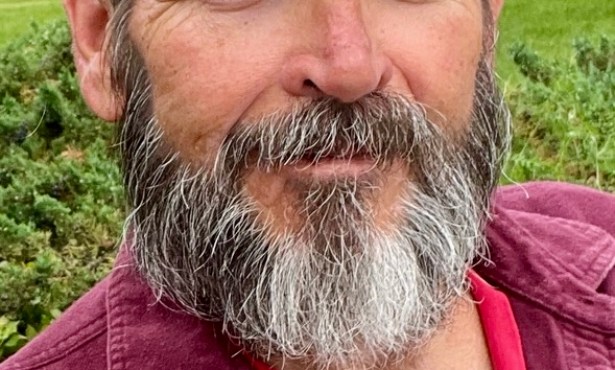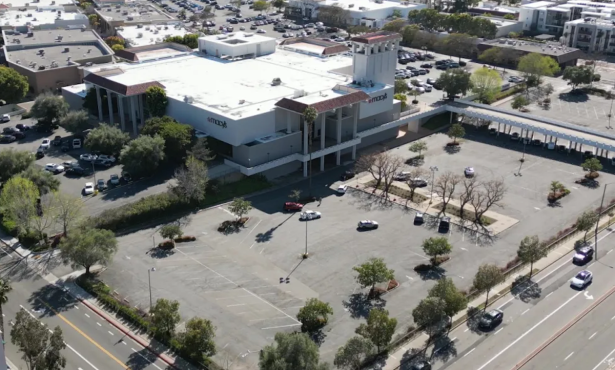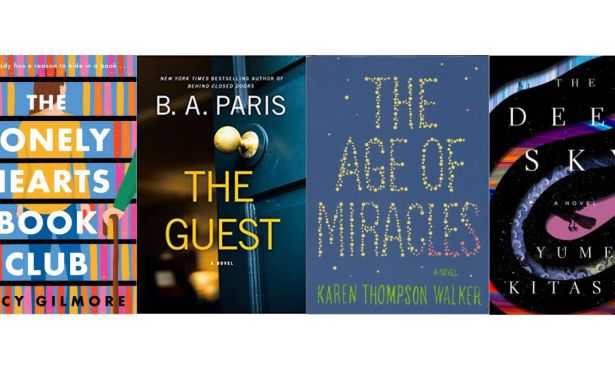Learning, Naturally
Learning Is Easy When Children Are Thoroughly Engaged in the Process
I have spent the last three months trying to get my nine-year-old daughter to memorize her multiplication tables (through 12). This has been one of the more tortuous and humbling experiences of my life as a parent, and has added another few inches to the height of the pedestal on which I put teachers. Teachers, amazingly enough, willingly spend entire days inside classrooms with large groups of children. My daughter’s teacher is actually enthusiastic about teaching multiplication facts. Thank goodness.
Child psychologists write about childhood as an ongoing process of weaning: first from the breast, of course, but then from the cradle, from the night-light, and on to bigger “weanings.” The first time I dropped my daughter at the sidewalk instead of walking her into school, the first time she walked by herself to the park after school instead of having me pick her up and drive her :
There’s been a whole series of weanings for me, too, as a mom: from the idea that I will always stay calm, from the assumption that my daughter’s personality will be like mine, from my glossy recollection of school. My eyes have been opened to a whole new universe of things to worry about.
The biggest thing I never thought I would have to worry about is school, or rather, learning. Confession: I was a nerdy kid, in the classic sense of the adjective. I showed up half an hour early to elementary school because I liked hanging out in the classroom. I even wore brown plaid dresses and pigtails. I was invariably the last one picked when my classmates chose teams in P.E. I was a little bit socially awkward, too. I remember my first taste of utter mortification, which occurred in third grade. Whilst studying Paul Revere, I raised my hand at the teacher’s request for a definition of a minuteman. I said (I kid you not): “A minuteman is somebody who is ready to fart at a minute’s notice.” Sadly, the trapdoor in the linoleum squares of my classroom floor did not appear and swallow me up whole.
Suffice it to say that I liked school, at least up until I discovered Metallica and hairspray. I have always assumed that the fact that school was easy for me had to do with luck, or genetics. A parallel strand of the story of my childhood is that I spent copious quantities of time outside. As an only child, living in the foothills without many other children as neighbors, I invented a whole clan of imaginary friends who accompanied me on explorations of the undeveloped acres around my house. Potion-making and fort-building were our primary diversions.
Last night I watched a documentary entitled “When Learning Comes Naturally.” The basic premise of the show is that learning comes naturally when children are thoroughly engaged in the process, and that there is nothing more engaging for children than outdoor places. In the outdoors, children’s natural curiosity is activated, and the result is a spontaneous excitement about creative exploration that can resonate for a lifetime.
The heroines and heroes of this documentary are, not surprisingly, teachers. In particular, we get to visit with teachers at four schools that have integrated outdoor education into all aspects of the curriculum. A priceless moment is captured on video when a second grader, studying slugs in the garden, discovers a slug habitat that his teacher had overlooked. “It’s all mucous-y and stuff!” he shouts from underneath the hedge.
Is it possible that all that time wandering around outside talking to myself had something to do with my aptitude at school? Boredom, which was the thing that drove me outside, is an art lost to contemporary childhood. A British psychology researcher set out, some time in 2006, to prove that boredom is actually good for kids. I can’t find any references to his study after the initial launch. Maybe he got bored with the subject. But David Sobel, a teacher who sits atop an extra-tall pedestal in my mind for being the teacher of teachers most vocal about the need for environmental education says: kids need “moments of unscheduled outdoor time when unexpected bits of life can unfold.”
I had lots of moments of unscheduled time. I also read piles of science fiction, which had its pros and cons. On one hand, I certainly had more than my fair share of curiosity, but on the other hand there was a fairly long period during late adolescence during which I whiled away my boring afternoons and summer breaks wondering why the heck the mother ship was taking so long to return for me.
I can’t say for sure that I learned my memorization facts and aced standardized tests because I had lots of time to wander around in the field with made-up friends from other planets : but who knows? When my daughter’s kindergarten teacher told me, at the end of the year, that she wasn’t up to “grade level standards” in the subject of ABCs, I went through the conventional stages of grief, moving quickly through “shock and denial” and lingering in stage 2: “pain and guilt.”
Surely it was all my fault for failing to play the “Baby Needs Bach” CD frequently through headphones clamped to my torso while she was still in utero. My daughter, now in fourth grade, is perfectly good at her ABCs. In fact, she reads like a champ. After kindergarten she was old enough (and had the good sense to be the daughter of someone who worked there) to start at Wilderness Youth Project. We switched to a school (Goleta Family School) with a focus on “environmentality,” where the kids go outside to the garden, an old-fashioned term for what is now an “outdoor classroom.” They go on hikes, and camping trips, and field trips outside. Every time they do this the district requires that we parents sign an “inherently dangerous” form, which the sixth graders have dubbed the “death form.”
Maybe we have it backward. Maybe the inherently dangerous part is keeping the kids inside.



